Pune Duo Fashion Old Sarees into Stunning Quilts, Help 30 Rural Women Earn a Living!
From the Netherlands to Spain, Quilt Culture's traditional 'godhdis' have carved their mark as a creative sustainable product in international markets!
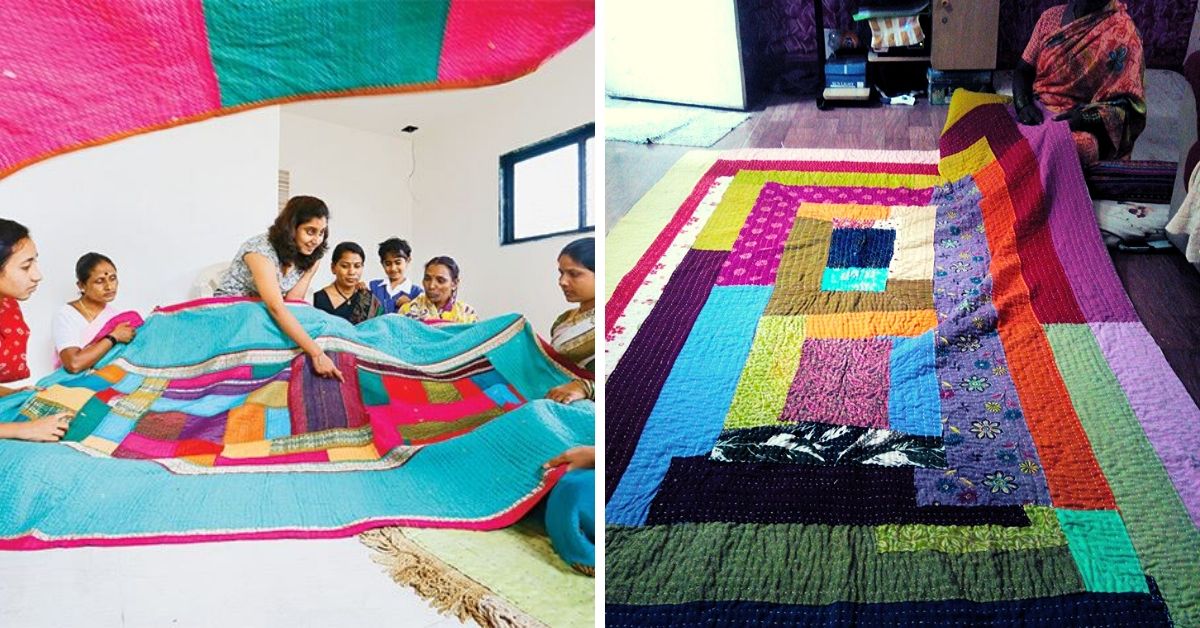
Godhdi, a multi-coloured quilt made of repurposed old sarees and dupattas, is an integral part of the Indian culture passed from one generation to another.
As soon as the nip in the air would herald the winters, women across Indian households would make a pile of old clothes, fetch their needles and colourful threads and sit together, talking and laughing while their nimble fingers worked masterfully, sewing new life into the old fabric. Naturally, the annual activity tightened the bond between the ladies of the house and created fond memories.

For me, being tucked warmly inside a soft beautiful quilt made by my grandmother is one of the fondest memories of childhood I have.
Sadly, this aesthetic tradition is now breathing its last, overtaken by the readily available, machine-made goods which can be bought online at the click of a button.
And this is precisely what Pune-based Archana Jagtap and Rucha Kulkarni want to change. With an aim to keep the ages-old culture of quilting alive, the duo founded a social enterprise called ‘Quilt Culture’ in 2015.
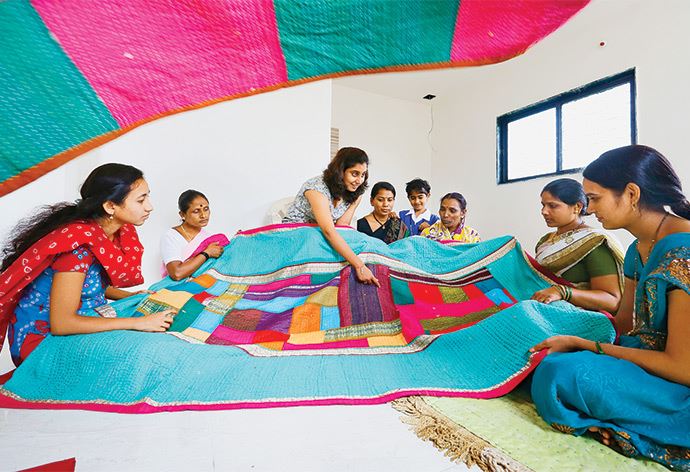
“We work precisely on traditional Maharashtrian quilting style, offering a range of bedding solutions and accessories like handbags and pouches. Most of our products are hand-stitched. To keep the aesthetic appeal, we use sarees like Irkal, Jijamata, Narayanpethi and fillers are made of Nagpur cotton,” Archana tells The Better India (TBI).
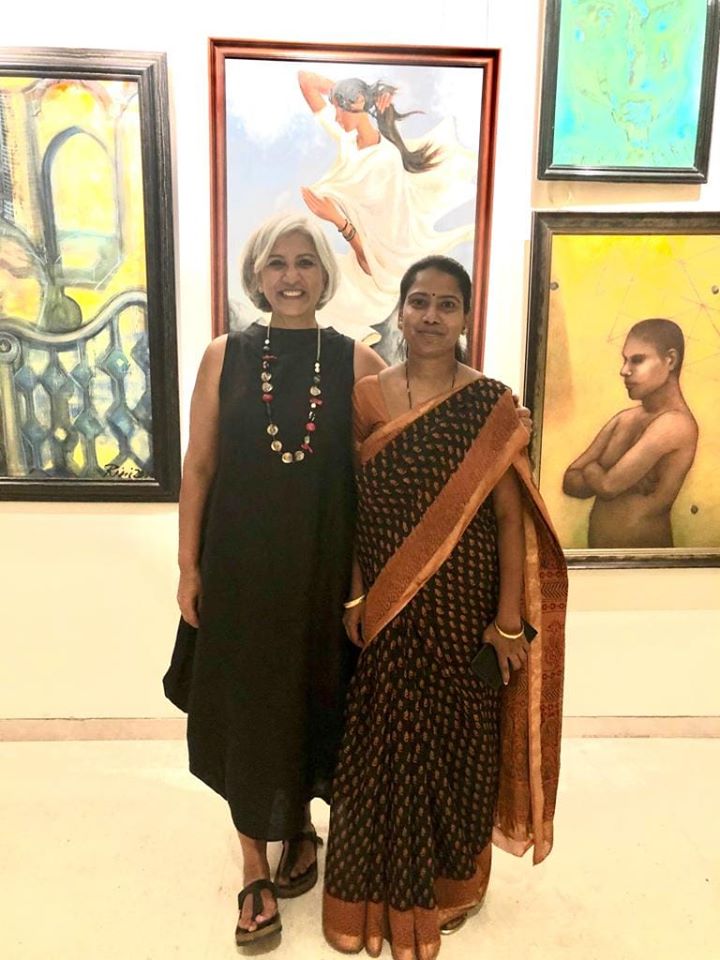
Through their startup, the friends are providing a stable livelihood to 30 underprivileged women from Kondhwa (suburban Pune).
Quilting in the Old into the New
Archana and Rucha’s tryst with godhdis also began when they were kids.
“While growing up, I would often see women would come in groups to our neighbourhoods and offer to stitch the quilts at reasonable rates. They would ask for old or torn sarees and rags as fillers and make a stunning godhdi within an hour or so. Gradually, I stopped seeing them due to the influx of readymade cheap comforters,” says Archana, a social activist who lives in Amsterdam with her husband.
Likewise, for Rucha who looks after the daily operations of the startup is a visual artist by profession and for whom godhdi-making was a household ritual that slowly faded away.
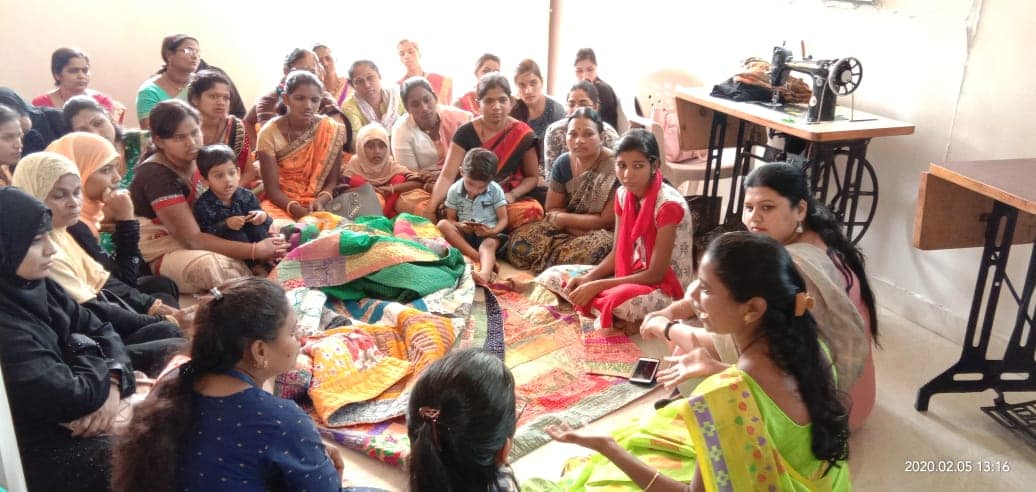
The duo met in a meeting at Alochana Centre for Documentation and Research in Pune. The meeting gave a platform to women from different quarters of life to share their professional concerns.
The duo began discussing various topics which eventually led to a talk about the dying arts of the country. Archana shared her idea of starting a for-profit initiative for poor women, while Rucha expressed her desire to revive the quilt-making process.
As part of their research on upcycled quilts, they happened to visit Archana’s old house in Ambedkar Nagar village, in the Kondhwa-Budruk area of Pune.
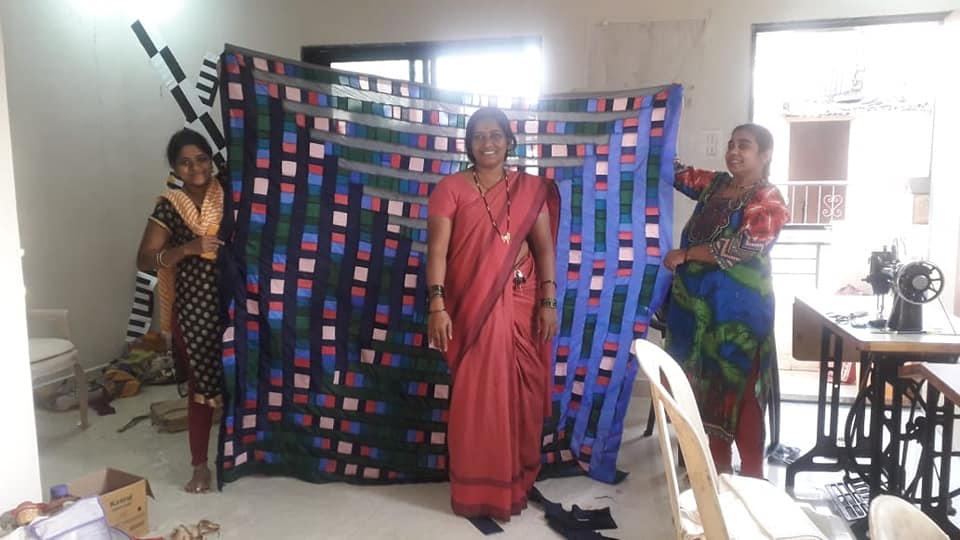
The women were pleasantly surprised to see colourful quilts hanging out on roofs, walls or sometimes as a partition in a cramped house. A family had even used a godhdi as a cradle for the baby.
“It was very encouraging to see the self-made quilts being an essential part of households and we instantly roped in and trained the women to be a part of our organisation,” recollects Archana.
Empowering Women, Reviving Tradition
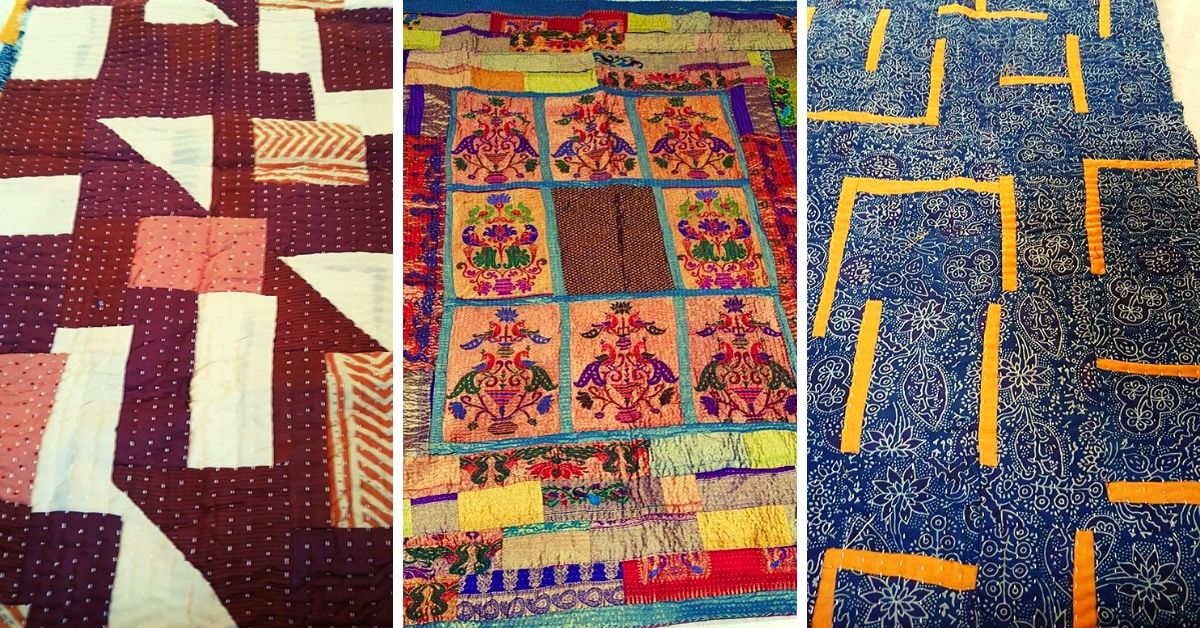
The quilt-making process is time-consuming involving a stitching pattern in straight parallel lines and requires each woman to dedicate a minimum of 15 days per quilt.
The women earn on a per piece basis that ranges between Rs 150 for bags Rs 1,000 for quilts. Though their income differs depending on the number of orders they get, each member earns an average of Rs 7,000 every month.
What makes this job exciting for these craftswomen are the new experiments, designs and learnings that come with each fresh collaboration, workshop or exhibition.
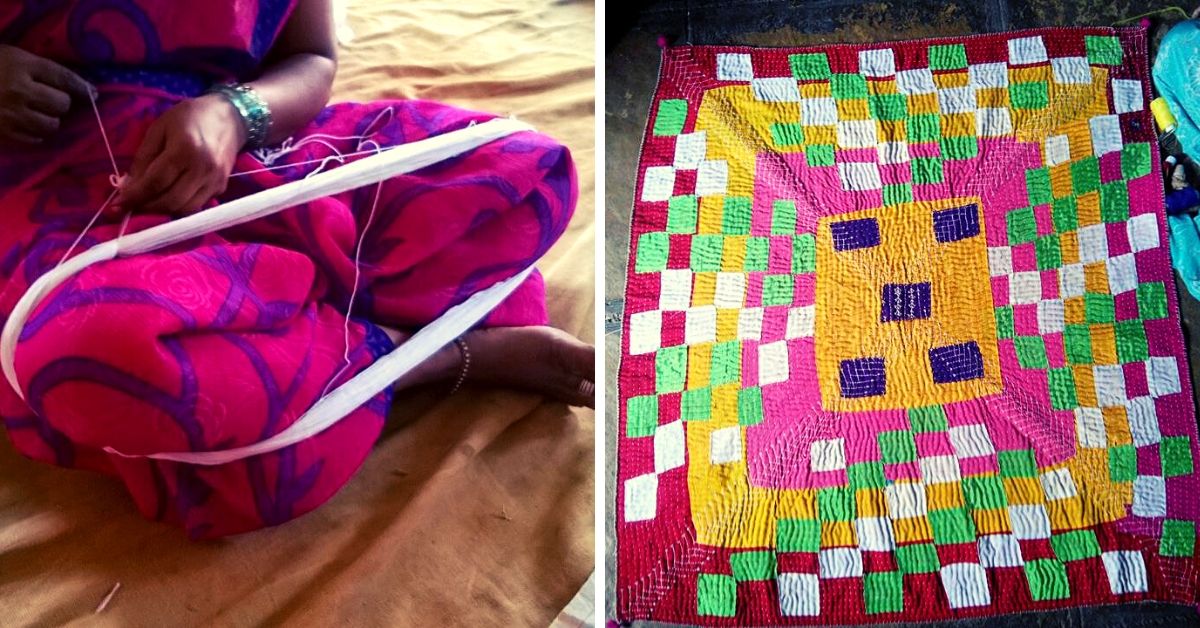
Tasnee Sayyad, one of the craftswomen, tells TBI, “From pants, bedsheets to handkerchiefs stitching is part of our household chore. However, I realised that stitching is a skill only after I joined the Quilt Culture. My stitching got a sense of direction and I have learnt a lot of patterns in the last four years.”
This job has also given her financial independence and has increased the overall household income, “My minimum takeaway every month is Rs 5,000 and the most I have earned is around Rs 10,000 in a month,” she adds.
On days when Tasneem or any woman is burdened with household chores or falls ill, they have the option of working from home allowing everyone to balance their personal and professional life.
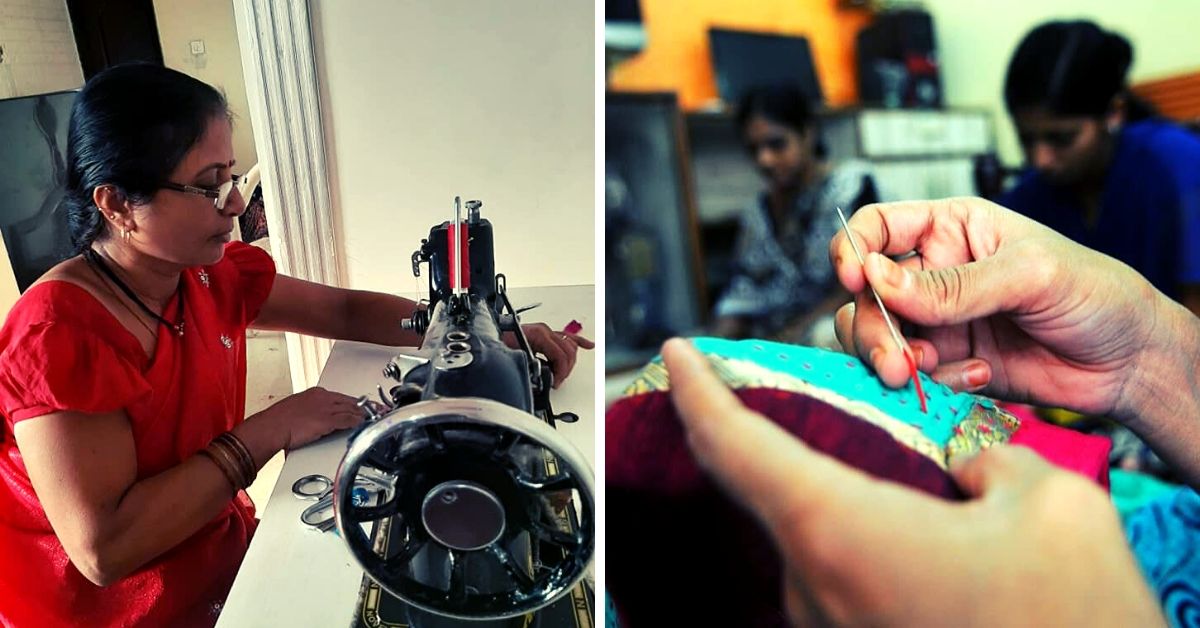
Escalating The Project
With any business house just spreading its wings, the duo spread their vision through social media and word of mouth for an initial couple of years. It helped them get generous donations of sarees, drapes, curtains, and clothes and so on.
As the popularity and demand of quilts grew, the duo found it increasingly difficult to source raw materials.
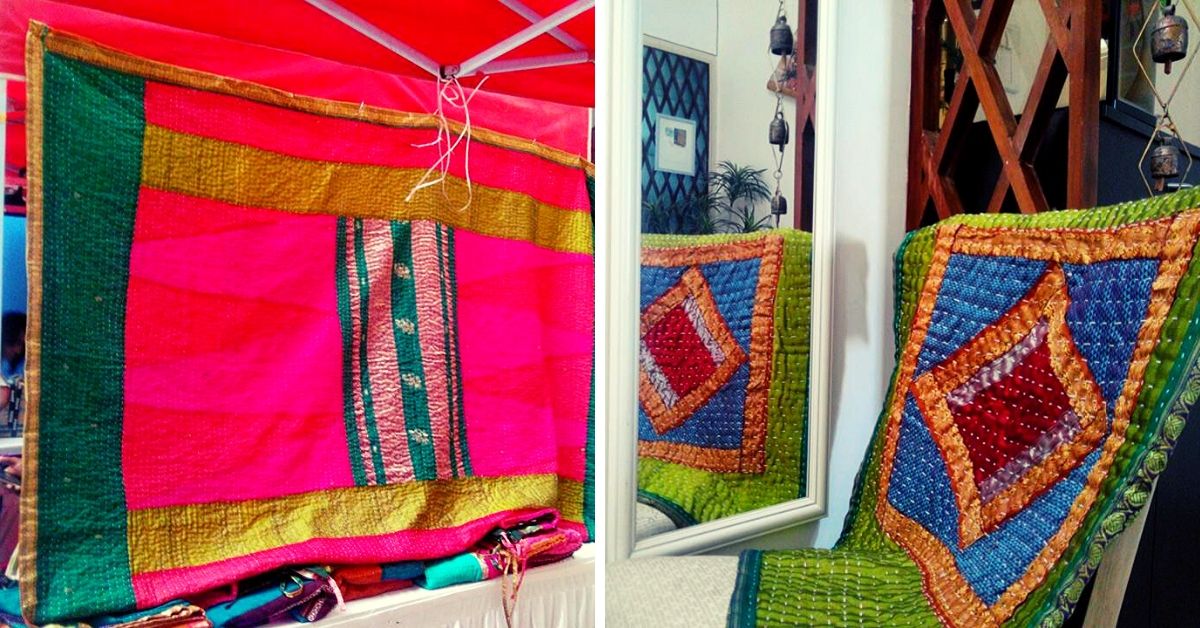
Quilt Culture promotes sustainable fashion by using discarded or waste sarees and fabrics, a trend that is emerging across the world.
And upcycling clothes has proven to be a financially viable model as the raw material cost is 40 per cent cheaper, “Instead of going for new fabrics, we purchase defective material from textile factories and tailors. This reduces our overall capital cost,” informs Archana.
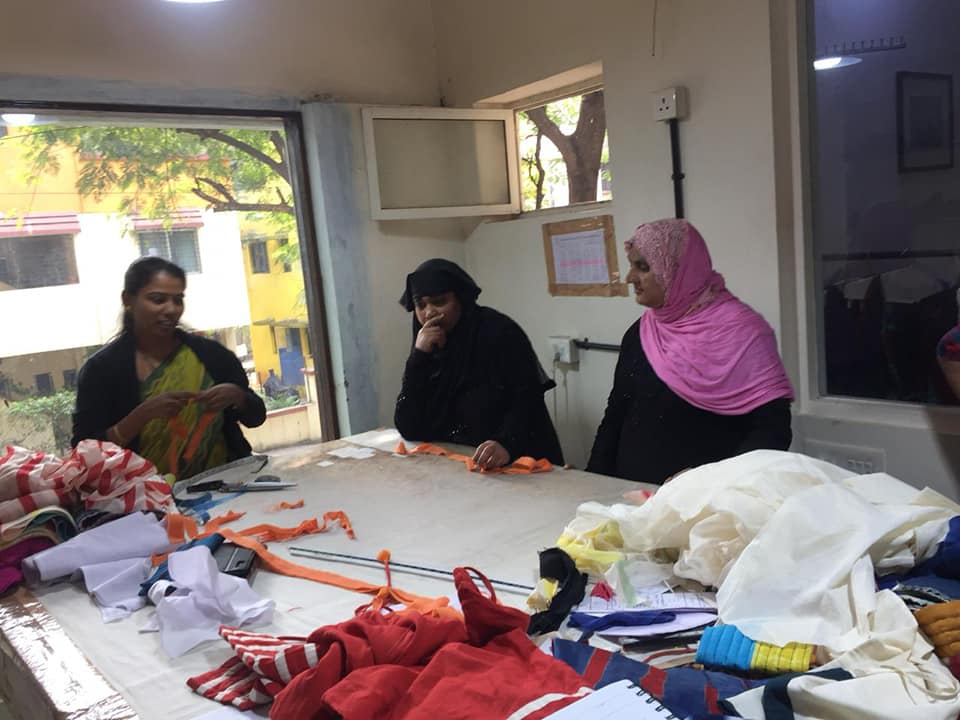
Even though their sales allowed them to invest in purchasing new clothes, they went for fabrics discarded by textile factories in line with their core value of reducing waste.
To further expand their reach, Archana and Rucha collaborated with designers from India and other parts of the world, taking the traditional craft of the country to foreign shores.
When Rucha moved to Amsterdam with her husband, she met up with Netherland-based art historian and curator Edith Rijnja and visual artist Harald Schole last year.
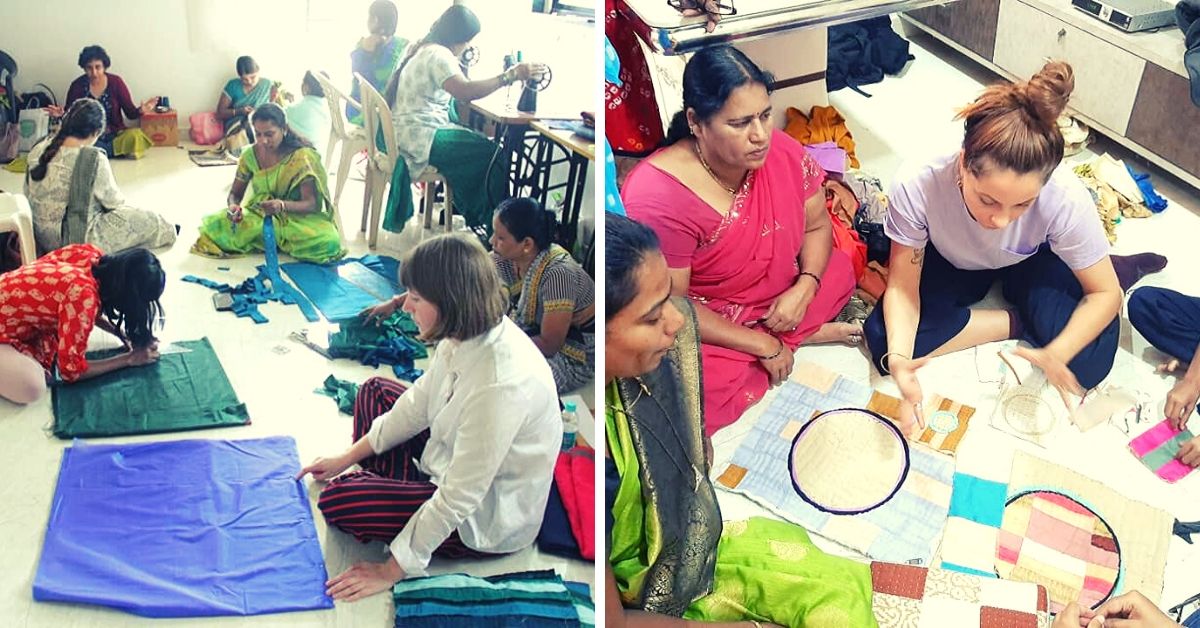
The duo finalised a two-week research-based workshop called ‘Beyond Quilting’ that eventually led into an exhibition in Pune.
Today, Quilt Culture has successfully made the godhdi as a creative commercial product in domestic and international markets including Spain, New Zealand and the Netherlands.
Presently, the activities of Quilt Culture are temporarily closed due to the nationwide lockdown. However, to keep the spirits of their employees high, the enterprise is organising regular online workshops for them to learn new designs.
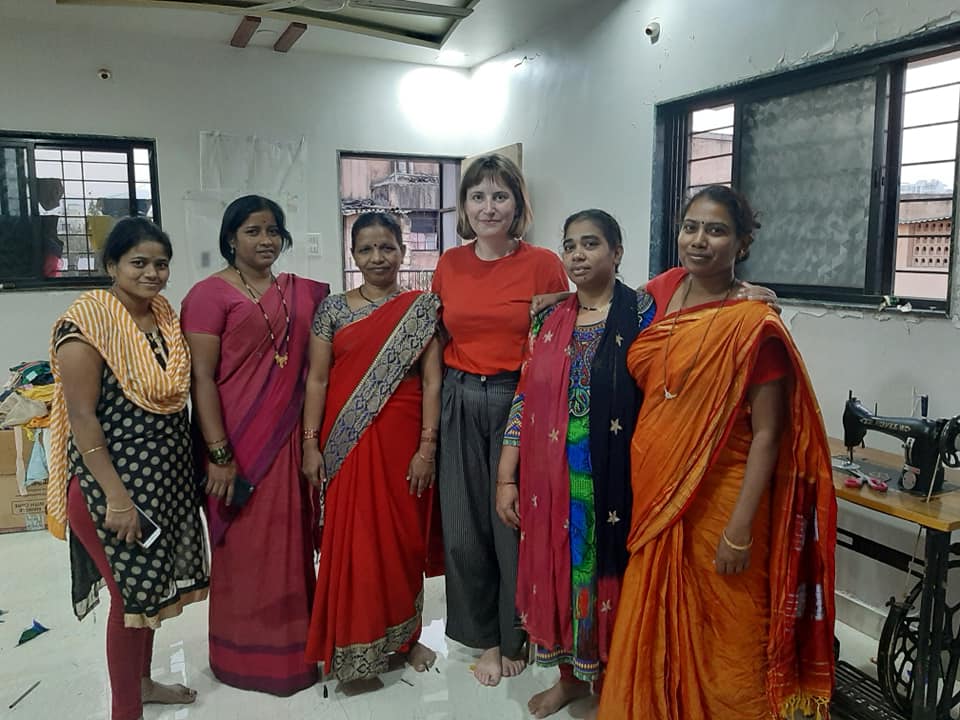
“The show must go on no matter how big the problem is. This attitude has helped us overcome many challenges in the past. We had started the initiative with a lifelong purpose and we will continue to boost everyone’s morale in these tough times,” shares Archana.
It is initiatives like these, built on a passion for the country’s rich past and respect for the creative potential of the women living in the underdeveloped areas of the country, that India can truly shine. We must look to women like Archana and Rucha who are building prosperous business houses while empowering talented women around them.
Also Read: Give This Pune Woman Old Clothes & She’ll Give Upcycled Bags, Blankets in Return!
All images are sourced from Quilt Culture/Facebook
(Edited by Saiqua Sultan)
Like this story? Or have something to share?
Write to us: [email protected]
Connect with us on Facebook and Twitter.
If you found our stories insightful, informative, or even just enjoyable, we invite you to consider making a voluntary payment to support the work we do at The Better India. Your contribution helps us continue producing quality content that educates, inspires, and drives positive change.
Choose one of the payment options below for your contribution-
By paying for the stories you value, you directly contribute to sustaining our efforts focused on making a difference in the world. Together, let’s ensure that impactful stories continue to be told and shared, enriching lives and communities alike.
Thank you for your support. Here are some frequently asked questions you might find helpful to know why you are contributing?


This story made me
-
97
-
121
-
89
-
167













